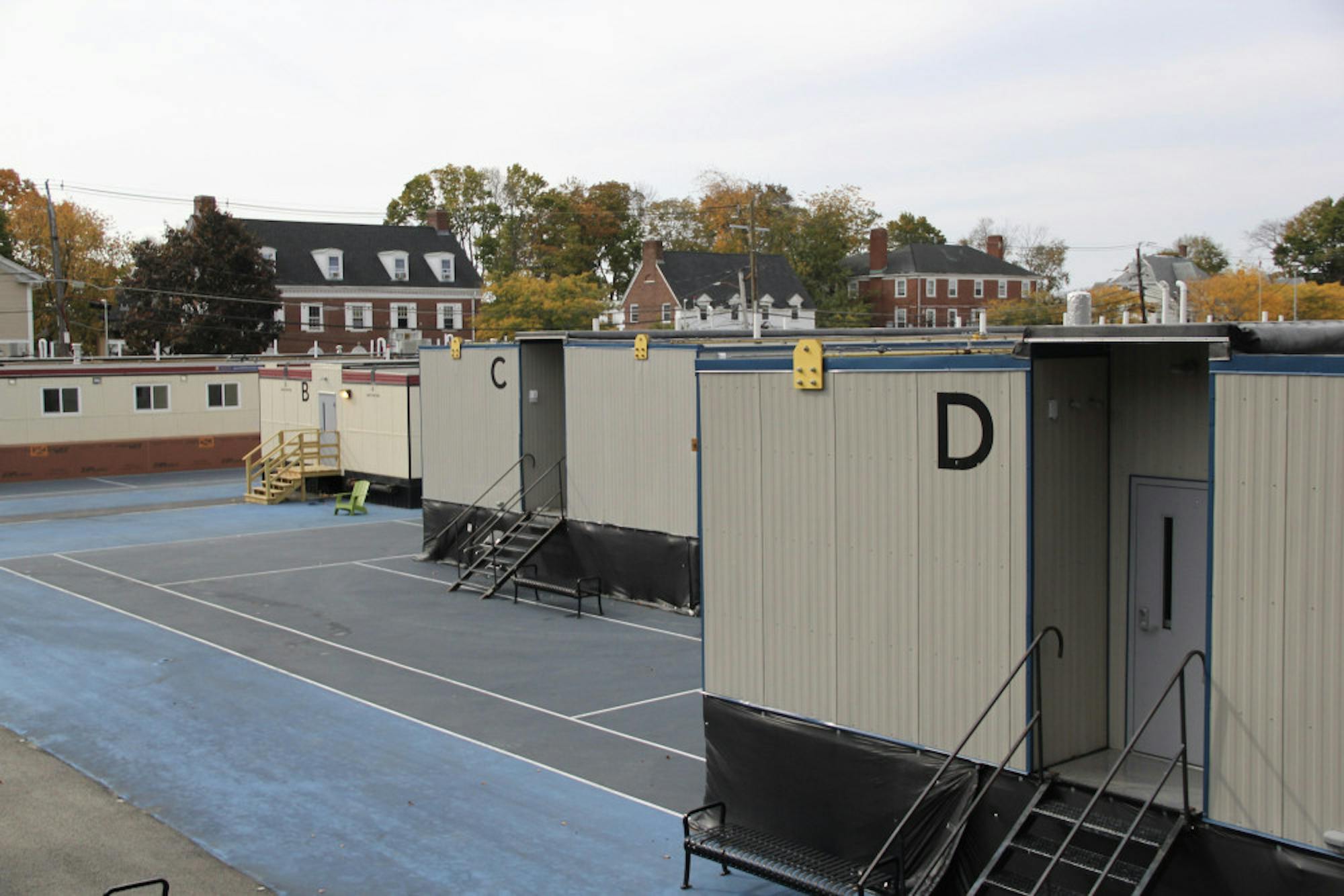University officials sent an email on Oct. 13 to all students studying music informing them about a new policy that would allow for singing and wind and brass instrument practice in two of The Mods on the Medford/Somerville campus.
This is a revision of aprevious policy, which detailed that no singing or wind and brass instrument playing is allowed on or off campus this fall.
According to the email, Mods E and F are the only spaces on campus where singing or playing wind or brass instruments is allowed for students pursuing music degrees.
The identified Mods have approximately 40 separate rooms that one person can practice in once a day. The rooms need to be requested and scheduled in advance and are professionally cleaned at the end of each day, according to the email.
James Glaser, dean of the School of Arts and Sciences,explained that the original policy was implemented because singing or playing the instruments creates aerosols that may lead to the spread of COVID-19 if the person singing or playing is infected.
“When the university’s health policy makers created our COVID-19 prevention protocols, it was determined that singing [and] wind or brass instrument playing could not be safely allowed on campus,”Glaser wrote in an email to the Daily. “Because we had a commitment to our host towns to apply the same health policies to students living off-campus as to students living on-campus, the singing [and] playing moratorium was applied to all students.”
Glaser added that students will also be isolated from others while practicing in The Mods.
Currently, the only students approved to use The Mods aspractice rooms are music majors, minors and graduate students, according to Richard Jankowsky, chair of the Department of Music.
“The pursuit of their chosen academic degree is potentially impacted by the restrictions on their musical activities,”Jankowsky wrote in an email to the Daily.“When conditions permit, it is hoped that the list of approved users can be expanded to include other campus musicians.”
Clara Scheutz, who is hoping to minor in music and is studying vocal performance, said she would like to take advantage of this new policy even though she has not yet declared her minor.
“Not only music majors and minors like to sing or play their wind instruments,” Scheutz, a first-year, said.“For a lot of people I think music is a huge outlet … it’s unfortunate that [the university is] limiting the accessibility for that but obviously I understand their need to.”
Glaser spoke to the university's decision-making process and how the policy may change if there is an uptick in COVID-19 cases on campus.
“We recognized that banning singing and wind instrument playing placed students pursuing a degree in music at a disadvantage, and we have been working hard to find a solution," Glaser said. "However, it’s important to note that if at any point the need arises to use the units for isolation and/or quarantine purposes, their use as practice spaces would come to an end."
Jamie Kirsch, lecturer of music and director of choral activities, said that although the original policy meant the department had to consider other ways of conducting class, he has been able to conduct music theory instruction and begin working on repertoire.
Kirsch expressed gratitude for the music community at Tufts and spoke to his hopes for the future.
“I feel very lucky to have such supportive colleagues and thoughtful, talented students,”Kirsch wrote in an email to the Daily.“We are all looking forward to a time when we can sing together again.”
Jankowsky added that classes in the department have adapted in a variety of ways to the policy.
“As a result of all these adaptations, we were able to offer over 95% of our fall curriculum (and with very strong enrollments) — a testament to the creativity of our faculty and the flexibility of our students,” Jankowksy said.
Scheutz mentioned that in her music theory class, the students are allowed to hum scales, with the condition that they must wear masks. She expressed excitement at the opportunity to sing in The Mods.
“For me, at least, singing is … a hobby and I think it’s just a way for me to destress and take time off of my other academic courses so when that opportunity came up I thought … I would definitely do that,”Scheutz said.
Jankowsky praised how the Tufts community has come together during the COVID-19 pandemic.
“We in the Department of Music are exceedingly grateful to the entire campus community for the strong sense of responsibility and care for each other it has exhibited during these challenging times,” Jankowsky said.






